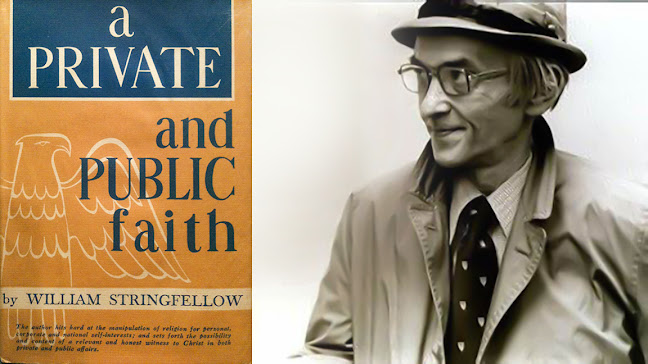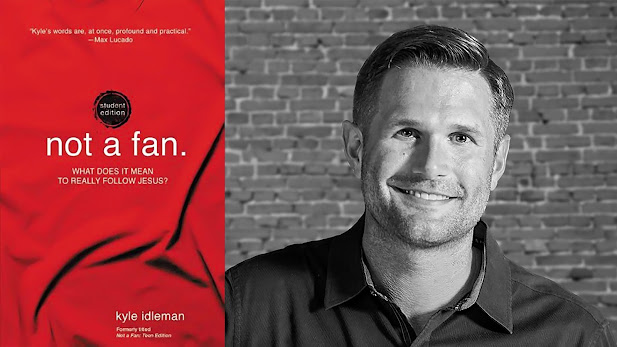William Stringfellow's Vision for a Just Society: A Review of 'A Private and Public Faith
William Stringfellow was an American lawyer and lay theologian who was born into a working-class family in the mid-twentieth century. Despite his humble beginnings, Stringfellow was deeply committed to justice and equality, and he took a particular interest in the plight of the underprivileged in his community. Throughout his life, he was more concerned with the well-being of others than with his own, even though he suffered from a serious illness for many years.
In a time when American Christianity was grappling with the challenges posed by a rapidly changing society, Stringfellow wrote "A Private and Public Faith," which explored the relationship between private faith and public action. This book was published during a period of great social upheaval in America, as the country was grappling with the issues of civil rights, poverty, and the Vietnam War.
In "A Private and Public Faith," Stringfellow argued that Christians must have a critical perspective on the dominant forces in society, including technology, political power, and the capitalist system, and that they must use their faith as a guiding force in their activism. He believed that Christians must resist the negative effects of these forces and must work to promote justice and equality in the world.
Stringfellow's ideas were heavily influenced by the work of Reinhold Niebuhr, who wrote about the response of Christians to an immoral society, and Jacques Ellul, who explored the relationship between technology, politics, and faith. Through these influences, Stringfellow developed a unique perspective on the role of faith in social and political activism, and he challenged Christians to think critically about the dominant forces in society and to use their faith as a guiding force in their activism.
The early Christians lived in an immoral society and maintained a radical attitude of resistance and critique. They sought to live lives of love and compassion, and to promote justice and equality in the world. In many ways, Stringfellow's ideas are rooted in this early Christian tradition, and he sought to continue this legacy by encouraging Christians to think critically about the dominant forces in society and to use their faith as a guiding force in their activism.
The title of Stringfellow's book, "A Private and Public Faith," reflects the central theme of the book, which is the relationship between private faith and public action. Stringfellow believed that a person's faith should not be limited to the private sphere, but should instead inform and shape their public actions and engagement with the world. He believed that Christians must use their faith as a driving force behind their activism, and that they must be active participants in the world, working to promote justice and equality.
In today's world, Stringfellow's ideas are more relevant than ever, and his book can provide guidance and inspiration for Christians who are seeking to make a positive impact in the world. The challenges that the world faces today, including poverty, inequality, and environmental degradation, are complex and require a deep commitment to justice and equality. By emphasizing the importance of integrating private faith and public action, Stringfellow's book can help Christians to become more involved in promoting justice and equality in their communities and in society as a whole.
In conclusion, William Stringfellow's book "A Private and Public Faith" is a valuable resource for Christians who are seeking to make a positive impact in the world. By exploring the relationship between private faith and public action, the book provides guidance and inspiration for Christians who are committed to promoting justice and equality in their communities and in society as a whole. Whether you are a progressive or a conservative Christian, Stringfellow's ideas offer a powerful message about the importance of using faith as a guiding force in your activism, and about the role that Christians can play in promoting justice and equality in the world.
One of the key themes of Stringfellow's book is the importance of resistance. He argues that Christians must be willing to resist the negative effects of the dominant forces in society, including technology, political power, and the capitalist system. This resistance takes many forms, including speaking out against injustice, working to promote equality, and standing up for the rights of the marginalized and oppressed.
Another important theme in the book is the idea of integration. Stringfellow believed that Christians must integrate their private faith and public action, and that they must use their faith as a guiding force in their activism. He argued that faith must inform and shape our public actions and engagement with the world, and that it must be more than just a private belief or a set of personal values.
The book also explores the relationship between faith and activism. Stringfellow believed that Christians must be active participants in the world, working to promote justice and equality. He argued that faith must inform and shape our activism, and that it must be more than just a passive belief or a set of personal values.
In conclusion, William Stringfellow's book "A Private and Public Faith" is a valuable resource for Christians who are seeking to make a positive impact in the world. Whether you are a progressive or a conservative Christian, Stringfellow's ideas offer a powerful message about the importance of using faith as a guiding force in your activism, and about the role that Christians can play in promoting justice and equality in the world. By integrating private faith and public action, Christians can become more involved in promoting justice and equality in their communities and in society as a whole, and they can continue the legacy of the early Christians who sought to live lives of love and compassion.(Book Review by Chatgpt)




댓글
댓글 쓰기